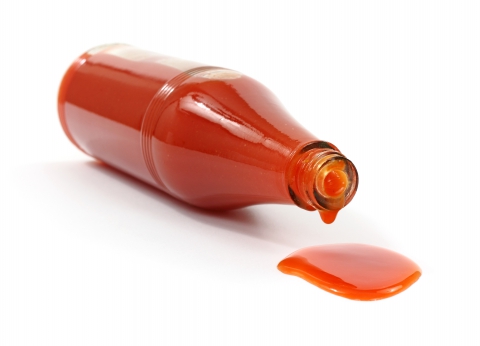It’s easy for old habits to creep back in. Whether you’ve already undergone bariatric surgery in New York at Weight Zen, or you’re simply considering it, it’s important to understand this concept. Life after weight loss surgery still required hard work and determination to lead a healthy life. You’ll need to stay motivated in order to keep up with healthy habits.
Today, we’re going to give you some tips to finding a balance within your family, work, and health so that bad habits don’t creep back in and ruin all your hard work.
Tips To Get Rid Of Bad Habits For Good After Bariatric Surgery
Want to let go of those bad habits? Not sure how? Follow these tips to move forward with healthy habits!
Re-ignite your motivation.
What is the catalyst that keeps you moving forward? What drives you? If you have a beautiful vacation coming up, you’re more likely to stick to your guns for those upcoming beach days, right? Perhaps the motivation that brought you success for things like vacations and jobs in the past is what can still drive you forward now. However, it may be possible that the catalyst has changed or doesn’t motivate you in the same way. That means it’s time to find a new motivator to spur you into action! Ask your post-bariatric friends on Facebook how they stay focused, speak to Dr. Rosen or Nutritionist Megan Wolf, or join one of our support groups here at Weight Zen.
Set a realistic plan for yourself.
Most people don’t follow through with their New Year’s Resolution plans because they aren’t realistic. It works the same way with weight loss goals after bariatric surgery! Your realistic weight loss plan should absolutely include meal planning so that you can plan ahead for busy days and stressful events. This will ensure that you’re eating the best foods for your body and that you’ll be able to keep your blinders up when temptations arise. We’ve all forgotten to pack a lunch for work and felt ravenous throughout the afternoon. Stay one step ahead of the game and your hunger by meal planning and setting realistic goals. Nutritionist Megan Wolf can help you set a great meal plan.
Focus on your four key areas.
When we see patients who have fallen off the weight loss bandwagon after bariatric surgery, we always encourage them to focus on the following four key areas:
Water
While water is certainly easier to drink for some more than others, we encourage our patients to take small dips all day long. Water is cheapest but so valuable. Drink water more often, and you’ll find that you aren’t as hungry as you may have thought you were. Additionally, it’s important to remember that we can confuse the feelings hunger and thirst. Because of this, Nutritionist Megan Wolf always suggests that our patients drink water if they aren’t sure if they are hungry or not. We want you to drink when thirsty, and eat when hungry – not eat when thirsty.
Meal structure
The second area we suggest focusing on is establishing a routine meal structure. While we know life happens and it’s not always possible to hold to your routine, you should still make every attempt to do so. Have you become relaxed about breakfast? Put your car keys in the fridge next to your cheese stick so you don’t forget to eat it. Make sure you’re consuming breakfast within the first 90 minutes of waking each day to keep your metabolism going and help control blood sugar and hunger.
Food choices and protein
Never underestimate how beneficial it is for you to make the best possible food choices. We recommend protein at every meal and snack. While we hate the word fail – and would never use it when describing our patients – the old saying, “failure to plan is planning to fail” is very true in regards to any type of weight loss plan. If you want to see serious results, you have to make changes. Set days to make your meal plans, cook, and stick to them.
Exercise
Once you’re able to exercise after your bariatric surgery, start doing so. We see all patients 10 days after surgery and Dr. Rosen will clear you for exercise when you are ready. Exercise schedules are also extremely important when it comes to weight loss plans because it’s not going to happen by accident. If you want to get back on track with your weight loss, set an exercise schedule, and stick to it. Having a hard time finding motivation? Hire a personal trainer – an incredibly worthwhile investment.
Consult With Your Bariatric Surgeon or Nutritonist If You’re Struggling With Bad Habits
If you’re struggling with bad habits after your bariatric surgery, we encourage you to contact us. We have a commitment to helping you with your weight loss needs, and that’s why we offer multidisciplinary therapies and support groups to leave no stone unturned when it comes to giving you the weight loss help you deserve.
 Weight reduction surgery helps to put you on your path to a healthier lifestyle, but you can still tip into the realm of unhealthy if you don’t follow your doctor’s or nutritionist’s orders. Watching what you put into your body is very important because your blood pressure and cholesterol can dip toward unhealthy. Especially after weight reduction surgery, you should still be watching what you eat. By stepping up and undergoing bariatric surgery, you were ready to change your life around. Don’t take a step backward by letting yourself go again. Understand your body and how eating fatty foods and practicing unhealthy habits can contribute to poor overall health, such as high blood pressure and cholesterol.
Weight reduction surgery helps to put you on your path to a healthier lifestyle, but you can still tip into the realm of unhealthy if you don’t follow your doctor’s or nutritionist’s orders. Watching what you put into your body is very important because your blood pressure and cholesterol can dip toward unhealthy. Especially after weight reduction surgery, you should still be watching what you eat. By stepping up and undergoing bariatric surgery, you were ready to change your life around. Don’t take a step backward by letting yourself go again. Understand your body and how eating fatty foods and practicing unhealthy habits can contribute to poor overall health, such as high blood pressure and cholesterol.


 Once you have weight reduction surgery, you need to consume a certain amount of nutrients to stay on the path of being healthy. One of the nutrients that need to be consumed daily is protein. Now that you’ve gone through bariatric surgery, it’s important to focus on a new dietary plan. It can be hard to adjust, but your nutritionist and bariatric surgeon probably told you why there are dietary restrictions and what foods need to be consumed. To help you stay on track, there are many foods that you can try, but there are also protein powder shakes to give you the nutrients you need in smaller portions. Portion control can be hard to maintain, but by exploring the wonderful world of bariatric protein powder you can hit your nutrient goals everyday, stay full, and continue on your path of being healthy and losing weight.
Once you have weight reduction surgery, you need to consume a certain amount of nutrients to stay on the path of being healthy. One of the nutrients that need to be consumed daily is protein. Now that you’ve gone through bariatric surgery, it’s important to focus on a new dietary plan. It can be hard to adjust, but your nutritionist and bariatric surgeon probably told you why there are dietary restrictions and what foods need to be consumed. To help you stay on track, there are many foods that you can try, but there are also protein powder shakes to give you the nutrients you need in smaller portions. Portion control can be hard to maintain, but by exploring the wonderful world of bariatric protein powder you can hit your nutrient goals everyday, stay full, and continue on your path of being healthy and losing weight. Why Use Bariatric Protein Powder?
Why Use Bariatric Protein Powder?
 Skyr
Skyr Here at Weight Zen, Dr. Rosen has helped hundreds of patients who suffer from obesity and weight control issues achieve a healthier life. We receive many calls from potential weight loss surgery candidates who are simply unsure about whether they are a candidate for bariatric surgery in New York. Today, we’re going to take a look at some of the basic standards of the ideal bariatric surgery candidate.
Here at Weight Zen, Dr. Rosen has helped hundreds of patients who suffer from obesity and weight control issues achieve a healthier life. We receive many calls from potential weight loss surgery candidates who are simply unsure about whether they are a candidate for bariatric surgery in New York. Today, we’re going to take a look at some of the basic standards of the ideal bariatric surgery candidate.

